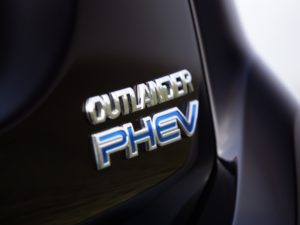Fleet industry concerned about Autumn Statement detail gaps
Despite some clarity on future company car tax, the fleet industry has criticised the Autumn Statement for not providing key details needed to help businesses make futureproof decisions.

Increased uptake of ultra-low emission vehicles is expected, but more clarity is needed according to industry insiders.
John Pryor, chairman of ACFO, said the organisation welcomed the exemption for ultra-low emission vehicles from the proposed new rules and the grandfathering of existing schemes through to April 2021.
He added: “However, many companies and public sector organisations have introduced salary sacrifice arrangements and it is disappointing that the Autumn Statement lacks definitive details on the new tax rules and whether they will also apply to car allowances.
“Businesses want stability and clarity and the Autumn Statement announcement just five weeks after the closure of the consultation period on the government’s proposed changes would appear to have given little time for the finite detail to be announced.”
While ACFO welcomed some long-term clarity on company car tax, Pryor added that details about the bands for vehicles emitting between 1g/km and 50g/km CO2, and 51 and 89g/km were unclear at the moment, and wondered if there may be further changes in the pipeline. “It is difficult to comprehend that in reality the already published benefit-in-kind tax rate for zero emission cars in 2019/20 of 16% will reduce to 2% and those with emissions between 1-50g/km will also significantly fall,” he said.
With ultra-low emission vehicles exempt from salary sacrifice taxation changes, and new benefit in kind bands better structured to recognise different technologies, the BVRLA sees take-up increasing once these come into effect, but added that it will continue to campaign for incentives in the meantime.
“These new bandings will create a much greater incentive for employers and employees to choose the cleanest electric and hybrid cars,” said BVRLA chief executive, Gerry Keaney. “However, these decisions are pragmatic, cost-conscious ones and we are concerned that they may be deferred until the incentives come into effect. The ULEV market could suffer in the meantime as company car tax costs rise significantly between now and 2019.”
Matt Dyer, managing director at LeasePlan UK, said there was also limited details on the definition of an ‘ultra-low emission vehicle’ with regards to the new salary sacrifice scheme. “We will have to wait for the Finance Bill on the 5th December to see exactly what this means,” he said. “It is also astonishing that April 2017 has remained as the implementation date, giving providers and employers comparatively no time at all to ensure they can comply with the new rules effectively, leading to unwelcome complexity for very little gain.”
Ashley Sowerby managing director at Chevin, said it won’t only be tax incentives that improve uptake of more efficient vehicles: “All of this is being announced against a continued unpredictable economic backdrop. While there are reasons to believe that the economy will continue to be quite strong, for many businesses there will undoubtedly be increased pressure to control costs and a definite accent on efficiency over the next few years.”

















